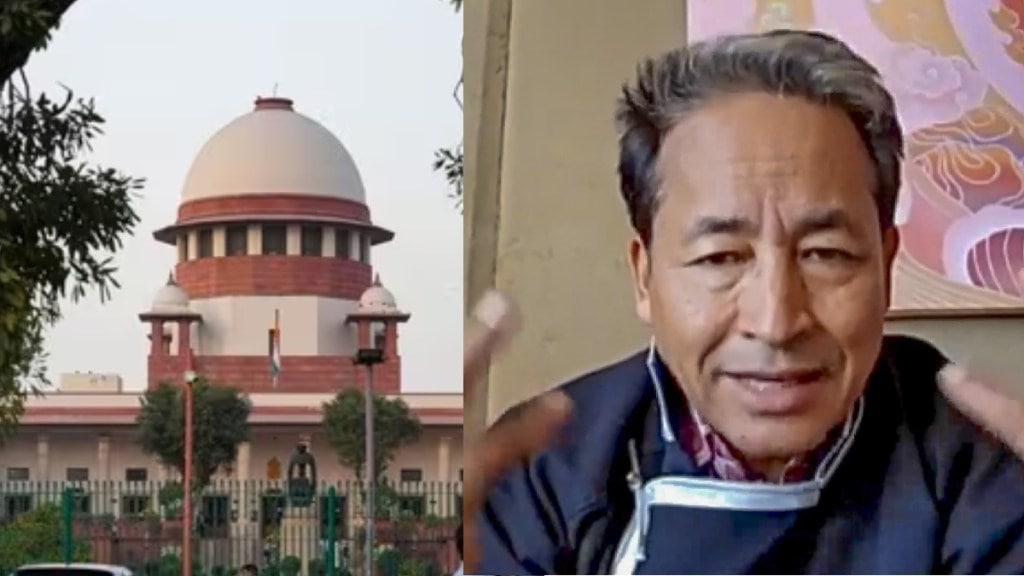The Supreme Court has adjourned a hearing in the Sonam Wangchuk detention case — setting December 8 as the new date. The apex court had sought a response from the Centre as well as the Ladakh administration in connection with the matter last month. The plea was filed by the wife of the jailed climate activist and argues that his detention under the National Security Act was “illegal, and an arbitrary exercise violating his fundamental rights”.
A bench of Justices Aravind Kumar and N V Anjaria had deferred the matter after Solicitor General Tushar Mehta sought time to respond to the rejoinder filed by Wangchuk’s wife. The activist was detained under the stringent National Security Act on September 26 following violent clashes in Ladakh. The NSA empowers the Centre and states to detain individuals to prevent them from acting in a manner “prejudicial to the defence of India” for up to 12 months.
Why was Sonam Wangchuk detained?
Sonam Wangchuk was detained under the NSA on September 26. This happened two days after violent protests in Ladakh, where people were demanding statehood and inclusion under the Sixth Schedule. The clashes led to four deaths and left 90 people injured. The government has accused him of enticing violence in the region.
On October 29, the Court had asked the Centre and the Ladakh administration to respond to the updated petition filed by Wangchuk’s wife, Gitanjali J Angmo. According to the Court’s cause list for November 24, the petition was scheduled to be heard by a bench of Justices Aravind Kumar and NV Anjaria.
What does the amended plea say?
In the amended plea, Wangchuk’s wife argues that the detention order is based on old FIRs, unclear allegations and assumptions. She says there is no direct or recent link between these claims and the reasons given for his detention, making the action legally and factually baseless.
She has also said that using preventive detention in this manner is a serious misuse of power that undermines constitutional freedoms and due process. According to her, this makes the detention order invalid and something the Court should set aside.
The petition said it is unreasonable to believe that Wangchuk, who has been honoured for more than thirty years at national and international levels for his work in education, innovation, and environmental protection in Ladakh and across India, would suddenly be targeted in this way.
It added that just two months before the elections and before the final discussions between the Apex Body of Leh, the Kargil Democratic Alliance, and the Home Ministry, he received a series of notices. These included warnings about cancelling his land lease and FCRA status, the start of a CBI inquiry, and summons from the Income Tax Department.
According to the plea, the timing of all these actions suggests that the detention order is not truly about maintaining public order or ensuring security. Instead, it appears to be a deliberate attempt to silence a well-known citizen who was expressing his democratic right to disagree with the government.
The petition also argued that the violent incidents in Leh on September 24 cannot be linked to anything Wangchuk said or did. It pointed out that he had publicly condemned the violence on his social media accounts and had said that such incidents would undo Ladakh’s years of peaceful struggle. He had described the day of the violence as one of the saddest moments of his life.
The plea further said that the full details of the detention order were shared with Wangchuk only after a delay of 28 days, which violates the time limit clearly set under Section 8 of the NSA.

